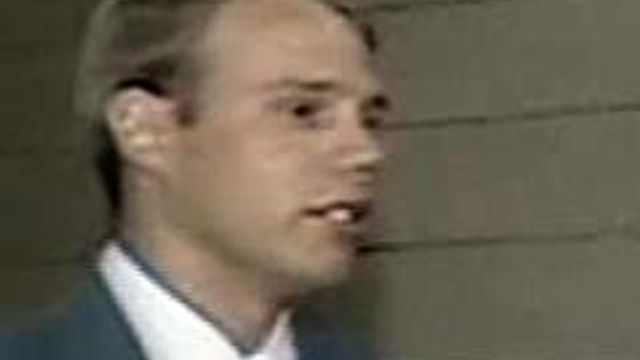Defense Questions Whether Soldier Should Be Charged in Triple Murder
Defense attorneys challenged the military's ability Wednesday to try a retired soldier for the murders of an Air Force captain's wife and daughters - a crime for which he was acquitted in civilian court two decades ago.
Posted — UpdatedNo witnesses testified in the opening hours of a hearing held to consider evidence against Master Sgt. Timothy B. Hennis. The Army recalled him to active duty last year in order to charge him with the deaths of Kathryn Eastburn and two of her daughters, who were found in their home near Fort Bragg with their throats cut in May 1985.
DNA linking Hennis to the crime was obtained during an autopsy of one of the victims, according to written information released by the military Wednesday.
Col. William Deneke, who is presiding over the hearing, said he would note the defense's jurisdiction challenge in his report to Lt. Gen. Lloyd Austin. As commander of the 18th Airborne Corps., Austin will decide whether Hennis will face a court martial -- the military equivalent of a trial -- and on what charges.
Hennis was arrested shortly after the murders, and civilian prosecutors charged him with raping and killing Eastburn and killing daughters Kara Sue, 5, and Erin Nicole, 3. Officials said all three had died from multiple stab wounds. A third child, 22-month-old Jana Eastburn, was found unharmed in her crib.
Chief Medical Examiner John D. Butts, who conducted Eastburn's autopsy, testified Wednesday that sperm was presented in her vaginal area. However, he could not confirm whether it came from Hennis.
Hennis was convicted in 1986 in a civilian court and sentenced to death, but the state Supreme Court awarded him a new trial after finding his first trial was run unfairly and with weak evidence. A second jury acquitted Hennis in April 1989.
Last year, using technology that was unavailable at the time of the slayings, the State Bureau of Investigation tested DNA samples from the crime scene. Hennis voluntarily gave a blood sample to the Cumberland County Sheriff's Department when he was first arrested.
Local prosecutors said the results warranted reopening the case, but civilian authorities were unable to again charge Hennis with the crimes because of the constitutional protection against double jeopardy.
But he can stand trial on those charges in a military court. A provision in military law allows the Department of Defense to recall retired personnel who are receiving retirement pay and charge them with crimes, said Scott Silliman, a Duke University law professor and retired Air Force lawyer.
Local prosecutors turned the DNA tests over to the Army, which recalled Hennis to active duty in September. He had retired in 2004, and was living in Lakewood, Washington Hennis was charged in November with three counts of murder and one count of rape.
"If the DNA sample has had a good chain of custody ... it can be used as evidence," Silliman said.
On Wednesday, Deneke discussed testimony from Hennis' prior trials, and the DNA and autopsy reports he will consider when recommending whether Hennis should be tried. Deneke, a civilian federal prosecutor in Tennessee and Army reservist, is presiding over the Article 32 hearing, similar to a civilian grand jury proceeding.
The case against Hennis originally involved a witness who reported seeing someone in the driveway of the Eastburn home at about 3:30 a.m. on May 10, 1985. That witness picked Hennis out of a photo lineup. Hennis had adopted the family's dog several days earlier.
Eastburn's husband, Air Force Capt. Gary Eastburn, was at squadron officers training school in Alabama at the time.
The hearing continues at 9 a.m. Thursday.
Copyright 2024 by WRAL.com and the Associated Press. All rights reserved. This material may not be published, broadcast, rewritten or redistributed.





